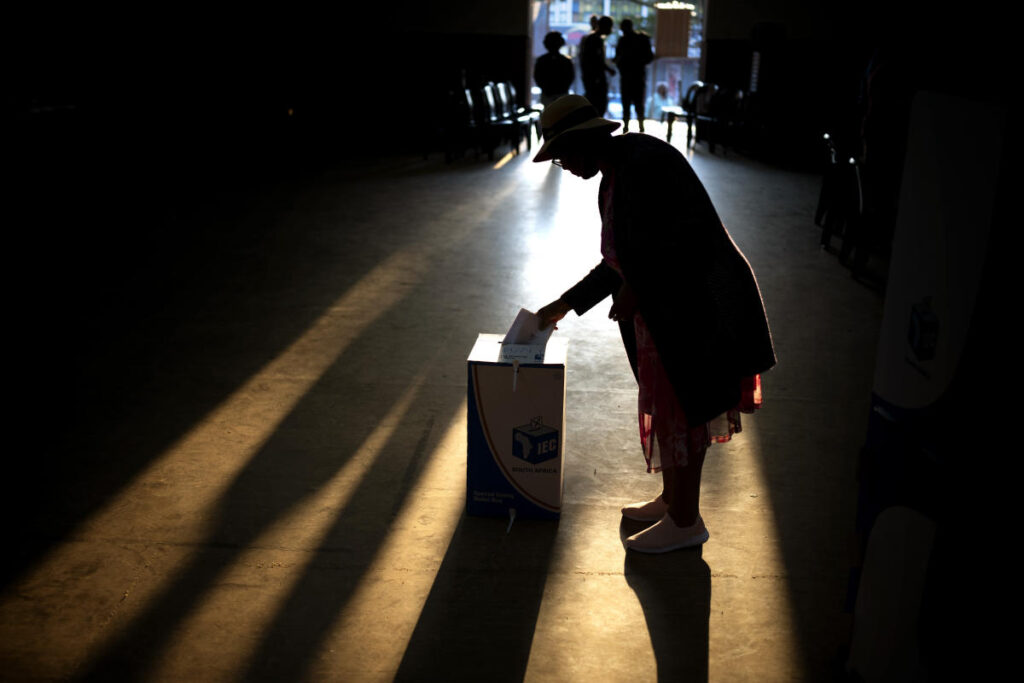CAPE TOWN, South Africa (AP) — South Africa is in a moment of deep searching for one election that produced a shocking division of the African National Congress, the party that gave it freedom and democracy thirty years ago.
In the days following the rejection of what was once the country’s most beloved organisation, South Africans were concerned with vital questions, not only about where they were going, but also about what they had achieved in their young democracy since the end of democracy. the racist apartheid system of the white minority government in 1994.
Despite Africa having the most industrialized economy, thirty years later the injustices of South Africa’s past have still not been righted. Nelson Mandela and the ANC were elected the first round of voting for all races in the country and promised a better life for everyone. That has led to discontent among millions of the poor black majority.
“We remain the pyramid society that apartheid and colonialism created,” said Thuli Madonsela, a law professor who helped draft a new post-apartheid constitution for South Africa in 1997, intended to ensure that everyone from then on moment was equal.
In her speech on national broadcaster SABC, Madonsela outlined how South Africa’s democratic journey continues to unfold marred by enormous problems of unemployment and race-based inequality at some of the worst levels in the world. In last week’s elections, the opposition parties were united in one thing: something had to change in the country with 62 million inhabitants.
The problems are both the hard-to-heal scars of apartheid and the contemporary shortcomings of the ANC. The nation, once a textbook example of brutal oppression that subsequently embodied great hope through Mandela, is still searching for what it wants to be – but at least self-consciously.
“What should we do with this South Africa of ours?” asked Thabo Mbeki, the former South African president who had the almost impossible task of succeeding Mandela as leader of his country.
Politically, South Africa is entering the unknown again as it happened after the watershed elections of 1994, but without the joy or optimism of a transition celebrated around the world. The ANC has lost its majority, but because no other party can catch up, South Africa faces the future a painful series of negotiations to form the first national coalition government in its history.
But amid the uncertainty and introspection of South Africans, some have urged them to take pride and take a closer look at what just happened.
The ANC has accepted the outcome of the elections and the will of the people without question, even after ending so long a political dominance that it was sometimes difficult to see where the ANC ended and South Africa began. An ANC leader once boldly said it would rule South Africa “until Jesus returns,” but the country graciously submitted to the will of the people last weekend and pledged to work with opposition parties for the good of the country.
After the election results were officially announced on Sunday evening, South Africans went to work and their children to school on Monday. South African President Cyril Ramaphosa, while still coming to terms with a historic defeat for the party he leads, he sent an online message to the nation, as he does at the start of every week. He started it off by saying, “We have just held a successful general election” and wrote that the vote showed “that our democracy is strong, that it is robust and that it will endure.”
Frans Cronje, a political and economic analyst, said this should not be lost given the way other long-ruling post-colonial political parties in Africa have rejected election results and clung to power. sending their countries into a spiral. And there have been attempts in recent years to undermine democracy and elections further afield in larger countries, he said.
“There really isn’t much to see here (in South Africa) other than a democracy that worked in a world where they don’t always work as well as the architects of Western democracy would have liked,” Cronje said. Cronje said it was “the least profound” observation he could make, and yet it might have gone unnoticed.
However, the intention was not to understate South Africa’s problems, and they are grim: the South African Human Rights Commission, one of several independent bodies set up by the government with a mandate to monitor democracy, found in 2021 that 64% of black people in South Africa and 40% of those with biracial origins were classified as poor, but for whites it was only 1%.
That must change quickly, Madonsela warned, or democracy in South Africa more stringent testing could be in store and the constitution she helped write could be in danger of becoming ‘meaningless’ to the people. She warned that some might confuse the failure of the ANC with the failure of democracy as a whole. More than 80% of South Africa’s population is black and the frustration of millions over broken government promises cannot be underestimated.
South Africa’s future now lies in coalition talks that will involve almost all major parties, although it is still unclear what the end product will be. More than Fifty parties participated in last week’s elections, with at least eight receiving a significant share of the vote, reflecting a country that has never claimed not to be complicated. Ramaphosa said South Africa needs to find unity “now more than ever”.
Such as trying to map politically and racially diverse groups a new way forward together, an optimistic South African might find a connection with one of the most famous speeches Mandela made sixty years ago, when he stood in an apartheid courtroom and remained steadfast in his defense of democracy, and that every South African can vote and have a may have voting rights. say in their future.
“We believe that South Africa belongs to all the people who live there,” he said.
___







